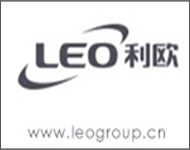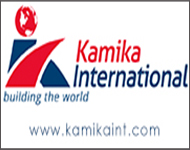- Groundbreaking Ceremony Marks Start of Sh50 Billion MTRH Construction Project
- TANROADS-World Bank Alliance Powers Massive Road and Airport Upgrades Across Tanzania
- Kenya Breaks Ground on Sh5 Billion China-Kenya International Commerce Center in Nairobi
- Construction Begins on $2.15 Billion Uvinza–Musongati Railway Project
- Kenya Secures Chinese Funding for Sh5 Billion Nithi Bridge Reconstruction
- Construction Nears for ELCT Facility Backed by Samia’s 250 Million Boost
- KeNHA Kicks Off Construction of Major Kenya-South Sudan Road Project with AfDB Support
- Tanzania Government Allocates 100 Billion Shillings for Bridge Constructions in Lindi
- $46 Million Deal Signed for Crucial Isiolo-Mandera Road Construction Project
- Tanzania Government Set to Sign Agreement for Dodoma Stadium Construction
Implementation of Uganda phosphate, steel venture set to start next month
China’s Guangzhou DongSong Energy Group plans to start implementation of its multifaceted Sukulu phosphate and steel project, in Uganda, next month, after securing $240-million in funding, which forms part of the staggering $620-million required for the entire project.
The project involves the establishment of a phosphate mine with a yearly capacity of two-million tons, a 300 000-t-a-year phosphate fertiliser plant and a 400 000-t-a-year sulphuric acid plant.
It also involves the construction of a steel mill with a yearly production capacity of 300 000 t and a 12 MW waste heat-based power generation plant.
In December, Guangzhou DongSong Energy Group secured $240-million from Industrial and Commercial Bank of China (ICBC) in cooperation with Standard Bank.
The closing of the deal paves the way for the company to start implementing the project, which is at the core of Uganda’s development agenda, as it will supply the East African nation with fertiliser to boost the agriculture sector.
“The project will boost agriculture production through the provision of fertilisers, support infrastructure development through the iron and steel production, offer jobs to the region, support other industries and boost our export earnings through value addition of primary commodities,” says Ministry of Energy permanent secretary Kabagambe-Kaliisa.
The project developer has been granted a 21-year mining lease, exploration licences and 600 acres of land.
Undoubtedly one of Uganda’s largest industrial complex investments, the Sukulu project is located in Sukulu Hills, in Tororo district, some 180 km from the capital, Kampala.
The project area is home to huge phosphates deposits, estimated at about 230-million tons. Projections by the Ministry of Energy indicate that the deposits can last over 100 years and generate $350million in yearly turnover.
The first phase of the project will involve the establishment of the mine and the construction of the fertiliser plant.
Overdependence on imports has continued to push up the price of fertiliser and adversely impacted on food production.
Uganda has the lowest fertiliser consumption rate in East Africa, at 50 000 t/y. This compares with Kenya’s 500 000 t/y and Tanzania’s 200 000 t/y.
The East African nation requires one-million tons a year to increase agricultural yields. It currently uses only 1 kg of fertiliser for every hectare, a far cry from the internationally recommended 200 kg/ha.
The second phase of the project will involve construction of the sulphuric acid plant and the steel plant, while the third phase will involve construction of the power plant.
Uganda wants implementation of the Sukulu project to be accelerated, as it is one of the four flagship projects aimed at developing the energy and mineral resources sectors for the country’s social and economic development.
Source: www.miningweekly.com
Posted on : 06 Apr,2016
Buildmart is Africa's leading directory and market news website for the building and construction industry | Kenya | Tanzania | Rwanda | Ethiopia
Exhibitions In Africa
- 27th Buildexpo Kenya 2026
KICC, Nairobi, kenya
08 - 10, July 2026 - 11th Afriwood Kenya 2026
KICC, Nairobi, kenya
08 - 10, July 2026 - 11th LightExpo Kenya 2026
KICC, Nairobi, kenya
08 - 10, July 2026 - 10th Minexpo Africa 2026
KICC, Nairobi, Kenya
08 - 10, July 2026 - 27th Buildexpo Tanzania 2026
Diamond Jubilee Expo Center, Dar-es-Salaam, Tanzania
23 - 25, Sep 2026 - 10th Afriwood Tanzania 2026
Diamond Jubilee Expo Center, Dar-es-Salaam, Tanzania
23 - 25, Sep 2026 - 10th LightExpo Tanzania 2026
Diamond Jubilee Expo Center, Dar-es-Salaam, Tanzania
23 - 25, Sep 2026 - 10th Minexpo Tanzania 2026
Diamond Jubilee Expo Center, Dar-es-Salaam, Tanzania
28 - 30, Oct 2026





















